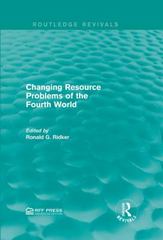Question
Q# 1 Explain why the saving curve slopes upward and the investment curve slopes downward in the saving investment diagram. Give two examples of changes
Q# 1 Explain why the saving curve slopes upward and the investment curve slopes downward in the saving investment diagram. Give two examples of changes that would shift the saving curve to the right, and two examples of changes that would shift the investment curve to the right.
Q#2 What is the q theory of investment? Who developed it? What is q, and what do different values of q
imply? How is q related to the stock market value of a firm and its capital stock?
Q#3 Explain Desire Capital stock with the help of diagram?
Q#4 6. An economy has full-employment output of 6000. Government purchases, G, are 1200. Desired consumption and desired investment are
Cd = 3600 - 2000r + 0.10Y, and
Id = 1200 - 4000r,
where Y is output and r is the real interest rate.
a. Find an equation relating desired national saving, sd, to r and Y.
b. Using both versions of the goods market equilibrium condition, Eqs. ( 4.7) and ( 4.8), find the real interest rate that clears the goods market. Assume that output equals full-employment output.
c. Government purchases rise to 1440. How does this increase change the equation describing desired national saving? Show the change graphically. What happens to the market-clearing real interest rate?
Q# 5 Use the saving-investment diagram to analyze the effects of the following on national saving, investment, and the real interest rate. Explain your reasoning.
a. Consumers become more future-oriented and thus decide to save more The government introduces an investment tax credit (offset by other types of taxes, so total tax collections remain unchanged).
b. A large number of accessible oil deposits are discovered, which increases the expected future marginal product of oil rigs and pipelines. It also causes an increase in expected future income.
Q#6 Explain Balance of payment and explain relationship between
i) current account and capital account
ii) current account and net export
Q#7 How would each of the following affect national saving, investment, the current account balance, and the real interest rate in a large open economy?
a. An increase in the domestic willingness to save (which raises desired national saving at any given real interest rate).
b. An increase in the willingness of foreigners to save.
c. A temporary increase in government purchases.
d. An increase in taxes (consider both the case in which Ricardian equivalence holds and the case in which it doesn't hold).
Step by Step Solution
There are 3 Steps involved in it
Step: 1

Get Instant Access to Expert-Tailored Solutions
See step-by-step solutions with expert insights and AI powered tools for academic success
Step: 2

Step: 3

Ace Your Homework with AI
Get the answers you need in no time with our AI-driven, step-by-step assistance
Get Started


